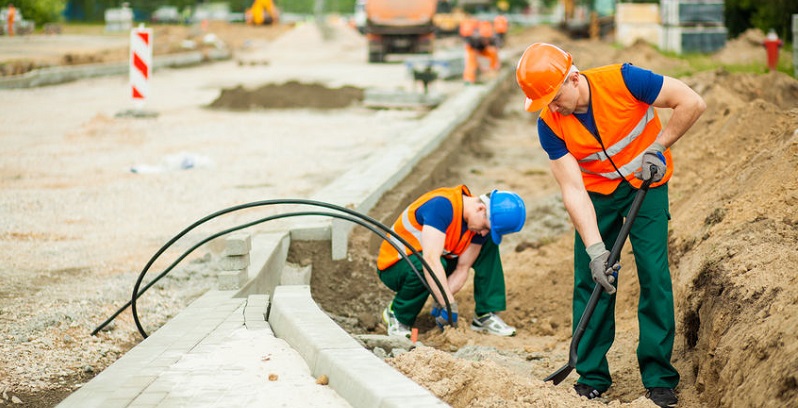If proponents of a 20-year, $20 billion sales tax initiative have their way, you’ll be paying 62 cents more for every $100 in regular purchases to build better roads. A competing $3.5 billion plan would cost you nothing extra but would take away from other Colorado programs.
November Ballot Offers Two Paths to Improvement
Colorado voters who believe the state needs to do more to build and maintain better, safer highways will have a complex decision to make at the polls on Nov. 6.
They’ll have to pick between two widely different and expensive plans, both to be paid for by Colorado taxpayers. The decision will determine how Colorado manages its overcrowded roads, highways, and bridges for as long as two decades.
‘Let’s Go Colorado’ Plan to Last Two Decades, Raise $20B
Proponents have given the larger measure, Proposition 110, (sometimes referred to as Initiative 153) the brand tag “Let’s Go Colorado”. It would create a substantial increase in Colorado’s sales tax rate, adding 0.62 cents to every dollar spent on non-exempt purchases, Jon Murray of The Denver Post reported. Those fractional pennies will add up, generating a projected $20 billion over the next 20 years.
The $20 billion would be split between state and local road projects and transit programs. And if approved, the revenue would let the state borrow $6 billion right away. The measure has gained wide-ranging support from business groups, such as the Denver Chamber of Commerce, and county and municipal governments across the state.
For perspective, the General Assembly gives the Colorado Department of Transportation (CDOT) an annual operating budget of about $1.6 billion but added a $645 million special allocation for construction projects in fiscal year 2018-2019. But still, it’s not close to filling an estimated $10 billion construction wish list CDOT officials say the state needs to fix its roads.
Colorado motorists know how crowded the streets, roads, and highways have become over time as the state’s population continues to swell. State transportation, safety officials, and lawmakers are paying particular attention to such issues because they’re contributing factors to the huge increases in Colorado auto accident fatalities over the past three to six years.
‘Fix Our Damn Roads’ Creates a $3.5B State Budget Mandate
The other, competing plan before voters would create a smaller $3.5 billion, one-time boost for the highest-priority projects on CDOT’s project list. This measure, branded the “Fix Our Damn Roads” initiative was proposed by the Independence Institute, a conservative libertarian organization in Denver. It pitches the plan as “saying No to taxes and Yes to roads.” The measure doesn’t have a funding provision such as a sales tax. Instead, if voters approve it, the measure will require the state to issue $3.5 billion in bonds from the state’s $29 billion annual budget that it will pay off over time, forcing lawmakers to cut discretionary money spent on other programs.
Independence Institute President Jon Caldara says the squeeze will force lawmakers to reckon with competing priorities in state spending, The Denver Post reported. The newspaper also talked to Mayor Jackie Millet of Lone Tree, who is against “Fix Our Damn Roads” because lawmakers already have trouble funding CDOT as it is. According to Mayor Millet, the “Let’s Go Colorado” tax proposal is the only way to ensure roads get enough funding in the long term. Moreover, it would pay for state-priority projects but also allow cities and municipalities to pay for their own road and street projects.
Here’s What Will Happen If Voters OK Both
The propositions will appear as two independent Yes or No choices. Voters can approve or flunk both or either, but only one measure can come out on top. Under Colorado law, if voters approve two conflicting measures, the one with the most yes votes will supersede the other wherever they conflict. Provisions of the second proposition that don’t conflict with the chosen measure will still go into effect. It’s unclear how those several possible scenarios would be interpreted.
Roads Facing Competition in Quest for Your Pennies
These aren’t the only tax issues facing Colorado voters on Nov. 6. Depending on where they live, some will have to decide on others involving college affordability, better mental health care, better parks, and better nutrition for at-risk children, The Post reported. If all of the sales tax measures presented to Denver voters win approval, sales taxes Denver consumers pay on regular purchases will rise from 7.65 percent to 8.93 percent. In monetary terms, residents would be paying $8.93 cents in sales taxes for every $100 in purchases, up from $7.65 today.

